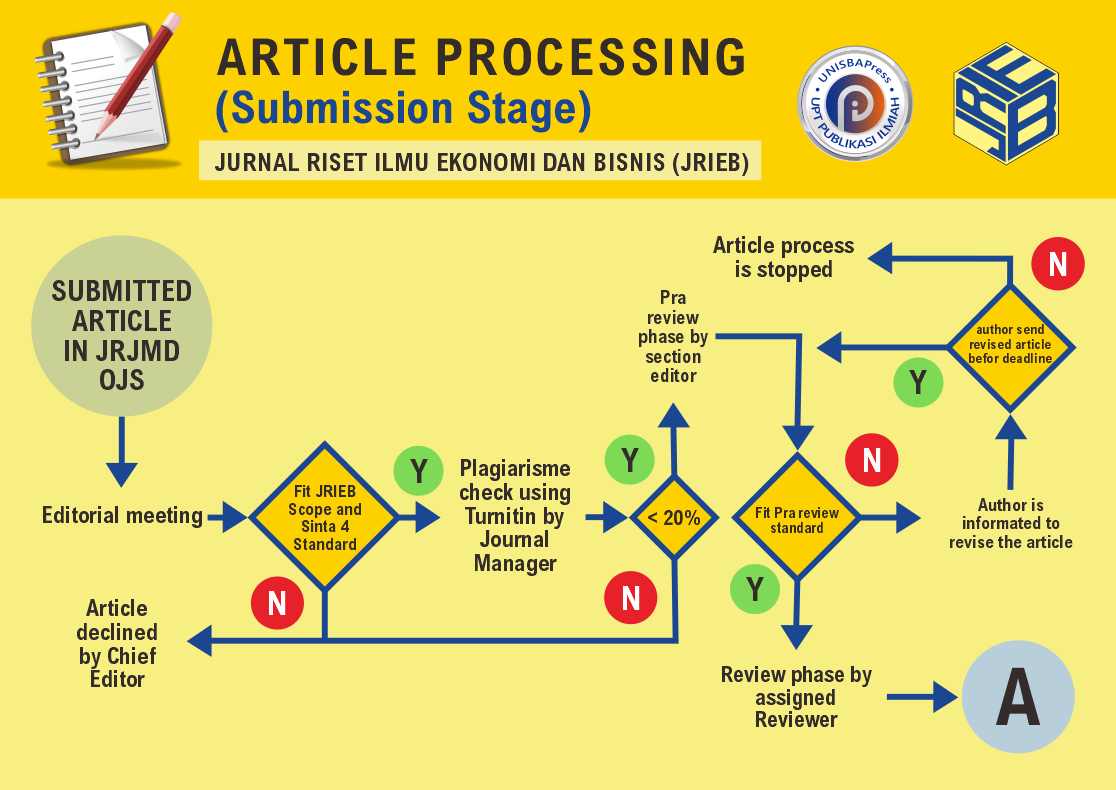Analisis Ekonomi Sikap Pekerja Migran Indonesia terhadap Risiko Kerja Luar Negeri
DOI:
https://doi.org/10.29313/jrieb.v3i2.2822Keywords:
Sikap Terhadap Risiko, Migrasi Internasional, Pekerja MigranAbstract
This article presents the results of economic research on Indonesian migrant workers in choosing attitudes toward the risks of working abroad. Primary data were obtained through a survey of prospective migrant workers managed by the Indonesian Migrant Workers Protection Agency of West Java Province. The data explored represent economic, social, demographic, and institutional aspects of migration, with mixed data properties, namely nominal, ordinal and multinomial. The qualitative limited dependent variable (QLDV) econometric method was used to estimate the ordered logit equation. The marginal effect estimation results found that migrant workers will tend to be risk lovers with a probability of 0.6343, when the wage level in their destination country is on average 15 million rupiah per month with an age of about 30 years, even though they do not participate in the migrant community, and have potential income.
Artikel ini menyajikan hasil penelitian ekonomi terhadap pekerja migran Indonesia (PMI) dalam memilih sikap terhadap risiko kerja di luar negeri. Data primer diperoleh melalui survei terhadap calon PMI yang dikelola oleh Badan Perlindungan Pekerja Migran Indonesia (BP2MI) Provinsi Jawa Barat. Data yang digali merepresentasikan aspek ekonomi, sosial, demografi, dan kelembagaan migrasi, dengan sifat data campuran, yaitu nominal, ordinal dan multinomial. Metode ekonometrika qualitative limited dependent variable (QLDV) digunakan untuk mengestimasi persamaan ordered logit. Hasil estimasi marjinal efek menemukan bahwa PMI akan condong menjadi risk lover dengan peluang sebesar 0.6343, ketika tingkat upah di negara tujuannya rata-rata sebesar 15 juta rupiah per bulan dengan umur sekitar 30 tahun, meskipun mereka tidak berpartisipasi dalam komunitas migran, dan memiliki pendapatan potensial.
References
Sjaastad LA. The Costs and Returns of Human Migration. J Polit Econ. 1962;70:80–93.
Jaeger DA, Dohmen T, Falk A, Huffman D, Sunde U, Bonin H. DIRECT EVIDENCE ON RISK ATTITUDES AND MIGRATION. Rev Econ Stat [Internet]. 2010;92(August):1–6. Available from: papers2://publication/uuid/23F3D1C4-B7AF-4BB9-8791-4DFDBA749CCD
Roca Paz R, Uebelmesser S. Risk attitudes and migration decisions. J Reg Sci. 2021;61(3):649–84.
Akgüç M, Liu X, Tani M, Zimmermann KF. Risk attitudes and migration. China Econ Rev [Internet]. 2016;37:166–76. Available from: http://dx.doi.org/10.1016/j.chieco.2015.12.004
Dustmann C, Fasani F, Meng X, Minale L. Risk Attitudes and Household Migration Decisions. J Hum Resour. 2017;58(1):112–45.
Neuman WL. Social Research Methods: Qualitative and Quantitative Approaches. Vol. 30, Teaching Sociology. 2014. 599 p.
Park HM. Regression Models for Ordinal and Nominal Dependent Variables Using SAS, Stata, LIMDEP, and SPSS*. Technology. 2009;4724(812).
Sundaya Y. ANALISIS KEUNTUNGAN DAN PELUANG PENGGUNAAN ALAT TANGKAP LEGAL DAN ILLEGAL DI KABUPATEN INDRAMAYU. Inst Pertan Bogor [Internet]. 2011; Available from: http://repository.ipb.ac.id/handle/123456789/51440.













